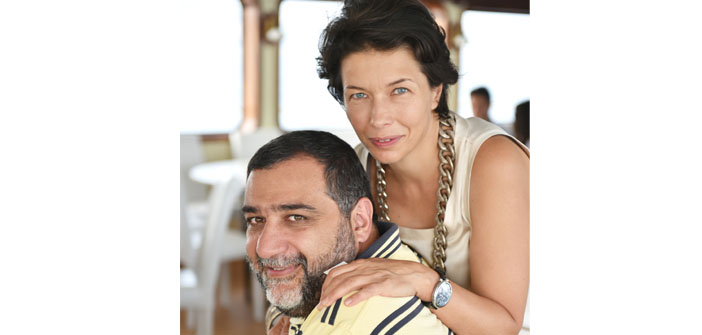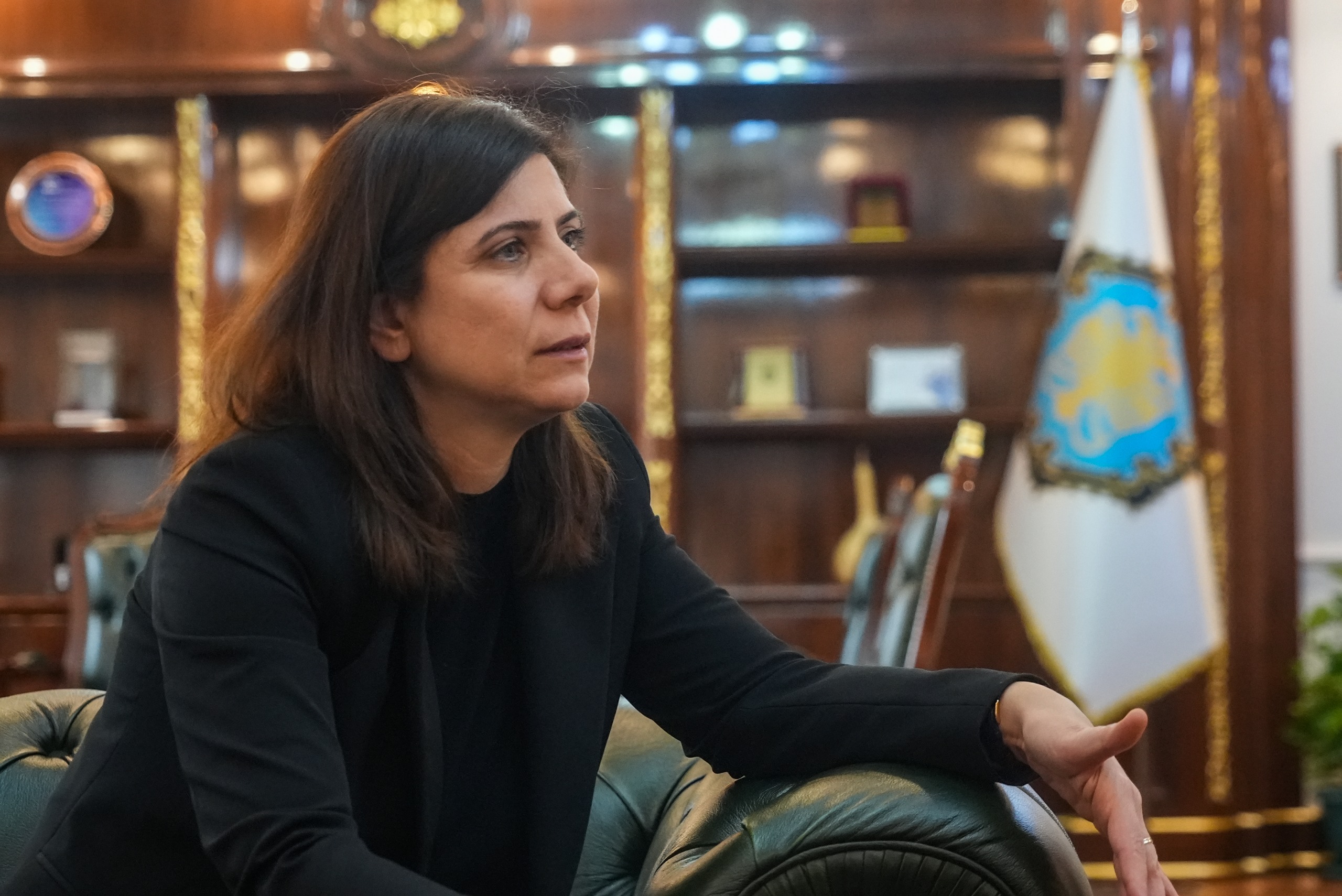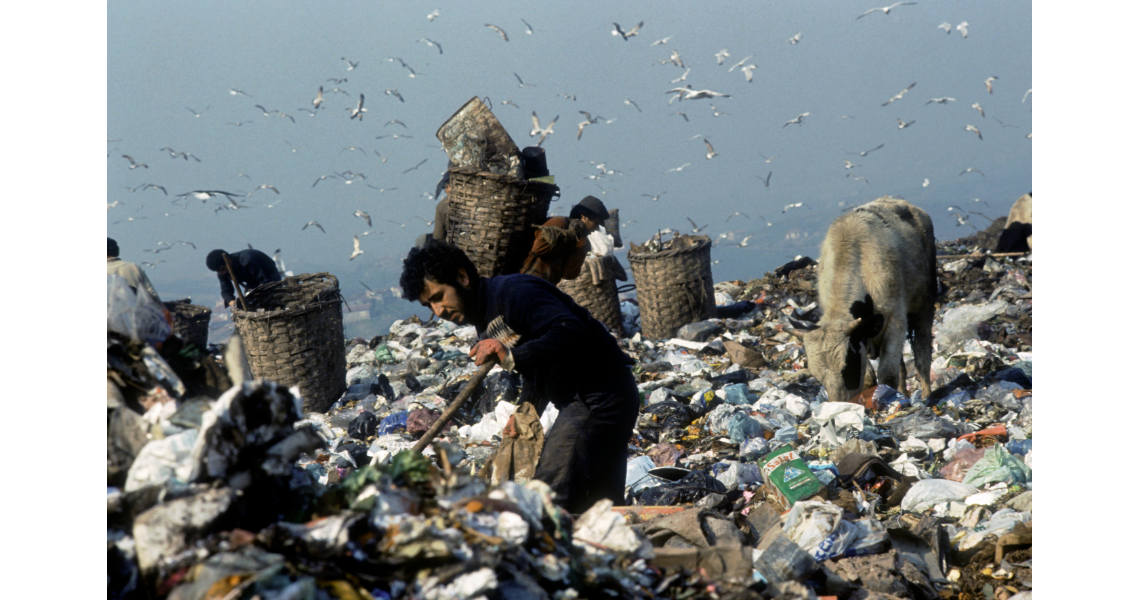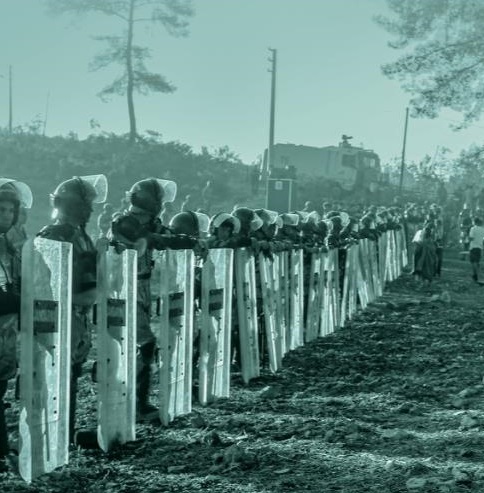One of the prominent figures of Armenian Diaspora, Russian investment banker Ruben Vardanyan is an important entrepreneur and philanthropist, co-founder of “100 LIVES” project which is one of the most remarkable events of the 100th anniversary of the Armenian Genocide. We talked to him about his observations about Istanbul and his new projects.
Projects about Armenian history and culture have a remarkable place in 14th Istanbul Biennale that is titled “Salt Water”. Dilijan Art Initiative, which is founded by Ruben Vardanyan and Veronika Zonaben in order to support the cultural development of Dilijan city and Armenia, supports these important projects about the Armenians in Biennial.
One of the prominent figures of Armenian Diaspora, Russian investment banker Ruben Vardanyan is an important entrepreneur and philanthropist. IDeA Foundation (Initiatives for Development of Armenia) that he founded with his wife Veronika Zonabend has the purpose of creating a bright future and a comfortable life style in Armenia with long-term projects. The international school established in Dilijan which has students from 64 countries and “Tatel Revival” which has the purpose of facilitating the cultural and economic development in and around Tatev are the most important projects that were realized by this foundation.
Vardanyan is the co-founder of “100 LIVES” project which is one of the most remarkable events of the 100th anniversary of the Armenian Genocide. Developed with the support of Hollywood stars like George Clooney and human rights activists, this project focuses on the stories of “rescuers” and “survivors”.
I asked Vardanyan, who says that imagining and believing in oneself is the first step of success, how he manages to create a common culture for the future of humanity by carrying the weight of his own history as an international figure in the business world, he replied that his only secret is “to look to the future with basing himself on the past.” We talked to him about his observations about Istanbul, which he visited for the first time, and his new projects.
“Base yourself on the past and look to the future”
Who is Ruben Vardanyan, the one that you know, not the one that all media speaks about and knows bio by heart?
I’m an ordinary, regular person. And I have, like everyone, something that drives me, my own “nuclear reactor,” as I call it. For some people, it’s more vibrantly expressed, for others less so. Without this engine, it is difficult to break the walls around oneself, change the world and achieve great success. I consider it very important for any person to find what makes him or her happy. For me, the greatest motivator has always been making the impossible possible, while my main task is to overcome mistrust in society in order to help people to understand each other better. And I do this through different mechanisms –collaborative commercial and social-philanthropic projects, creating platforms for communication in the form of conferences, etc. Therefore, all of my projects are actually about the same thing –an attempt to change the world and my environment and an attempt to convince myself and others that the impossible is possible and that everything depends on ourselves.
How did you come up with the idea of establishing United World College Dilijan?
My wife Veronika and I began grasping the concept in 2006, when we were looking for the possibilities for education for our children. We visited over 20 schools across the world, studying their experience. Hence, our project for the international school in Dilijan was born. When Veronika submitted the paperwork for IBO accreditation, she was told that our concept and mission almost fully coincided with UWC. There was another happy coincidence: the Vice President for Finances at the EBRD Manfred Schepers, who is today one of the trustees and members of the Board of Governors at our school, himself a graduate of UWC Atlantic College and a member of the UWC Board. During a meeting, he told me about this system and the benefits and creating this school would provide for Russia and the post-Soviet space. In 2013, our school became a member of UWC and has been truly international since its first year –96 children from 48 countries enrolled. And this year, representatives of 64 countries are studying with us.
You supported the works of Armenian artists in Istanbul Biennial. Could you please tell us about more of these works and Dilijan Art Initiative?
I want to mention that, besides Armenian artists, the Armenian program for the 14th Istanbul Biennial includes many non-Armenians, who dedicated their works to the topic of the Armenian Genocide. As I already mentioned, all the projects I implement together with partners are different mechanisms for solving a single task. Dilijan Art Initiative is also intended to unite people. This is a non-profit project, the goal of which is to create a basis to develop the city of Dilijan and Armenia as a whole. The project aims at promoting Armenian culture in the world and it provides assistance in presenting the works of artists from the Armenian Diaspora at leading world exhibitions and cultural events.
Would you be open to support the works and productions of artists or institutions from Turkey who have a special focus on Armenians, Armenian culture and history?
Yes, of course. This is a special year and it was important to us that the Biennial in Istanbul also reflects the topic of the Armenian Genocide.
What are your observations from your Istanbul visit? What has surprised or disappointed you?
This is my first visit to Istanbul and I really liked it there. It was especially interesting to speak with the local youth who worked together with us at the Biennial –volunteers, guides, etc. Their receptiveness and open-mindedness is impressive. What I disliked was the enormous amount of garbage in the city.
How did you come up with the idea of 100 LIVES projects? How does talking about the Genocide through the rescuers and survivors contribute to the healing?
The project was born from the history of my family, as you know. The main message I wish to convey with this initiative is that we are grateful to those people and organizations that helped the Armenians survive 100 years ago. And, despite all the attempts to annihilate the Armenians as a nation, we’re alive, and we’ve achieved success and we contribute to the world a lot in the most varied spheres of activity.
Your grandfather was one of the survivors. How much did he tell you about his story? How did this story shape your life?
My grandfather spoke very little about what he had to endure. He grew up in a shelter and disliked recalling and speaking about this. I found out the details of his story not from him directly, but from relatives and friends. At a certain stage of my life, I realized that my grandfather survived because someone helped him to survive and I developed the desire to help other people as well.
I have read that you climbed Mount Ararat with your son. How did you feel when you were in the land of your grandparents?
I have to say that, given my weight, climbing the mountain was very hard for me, not to mention we were caught in a snowstorm. But I am glad that we were able to overcome all the challenges. I once promised my grandfather that I would climb Ararat and it was important for me to keep this promise.
What are your observations and feelings about the Centennial of the Genocide in Diaspora and in Turkey? Do you see any change in terms of confronting or talking more openly about Armenian Genocide in Turkey?
I think that the topic of recognizing your past is very important for Turkish society. In this sense, in my opinion, the problem of discussing the Genocide is already becoming a necessity for Turkish society in order to answer the questions from their past.
What is your understanding of reconciliation? To what extent art can play a role for reconciliation and dealing with the past?
Art possesses a unique galvanizing force, capable of uniting members from different cultures, ages and disciplines, since its language is universal. It creates a basis for creative investigation of the “illnesses” of history and politics, and for seeking paths for reconciliation. In addition, it is one of the ways of learning, and contemporary art has colossal educational potential. And education is a powerful instrument for creating the future. Our project Dilijan Art Initiative embodies all of these elements –interpersonal and intercultural connections and education.
As a businessman, as a universal figure in business world today, in one hand you carry the weight of the history on your shoulders as an Armenian and on the other hand, you keep contributing to the future of human beings, by supporting art and producing a common culture; how can you manage that?
I believe you have to base yourself on the past and look to the future.
You have done other projects as Tatev Revival and UWC Dilijan in Armenia. How do you evaluate the present and future social and economic situation of Armenia?
I believe in a bright future for Armenia.
Do you have new projects, plans and dreams for near future?
It is very important not only to dream, but also to realize your dreams. Now we have to implement all of the projects we have already begun. But you must keep dreaming.
What is your advice for young Armenians as a key for success?
Believe in yourself.






